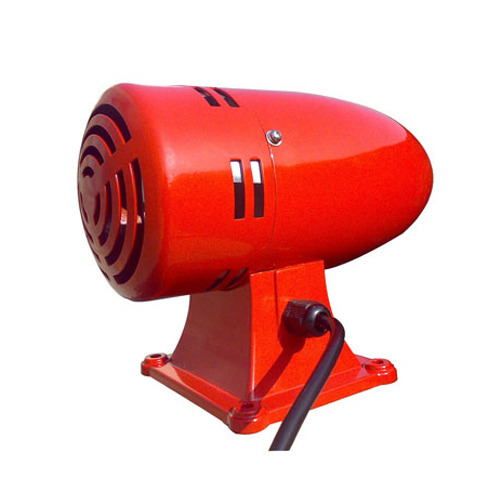Schedule a Call Back
Make in India 2.0 Vision to empower manufacturing industry
 Articles
Articles- Feb 16,23

India’s manufacturing sector is showing clear signs of positive change due to the consistent efforts by the government, Niti Aayog and a conducive policy framework. It’s a challenging task to imbibe the spirit of self-reliance in the manufacturing sector. Considering the governance, taxation and policy related issues of the past decades, there is a big transformation taking place in the manufacturing sector.
Now a big change is visible, the mood is upbeat and the government is taking proactive steps to bolster manufacturing ecosystem. The Vision 2025 is already making steady progress based on the roadmap drawn by the government for promoting the manufacturing sector. Self-reliant India is the new vision set to be pursued by the manufacturing sector. The Atmanirbhar Bharat Abhiyaan (self-reliant India movement) is the vision of new India envisaged by the Prime Minister. It was a clarion call to the nation for invoking the spirit of self-reliance in every sector, especially in the field of manufacturing.
The vision needs to be pursued further for overall development of the manufacturing sector across segments. Self-reliant India Movement aims to make the country and its citizens independent and self-reliant in all sense. There are five pillars of Aatmanirbhar Bharat – economy, infrastructure, system, vibrant demography and demand. Finance Minister further announced government reforms and schemes across seven sectors under Aatmanirbhar Bharat Abhiyaan.
The government has taken some bold steps such as implementation of Production Linked Incentive (PLI) schemes to promote the electronics manufacturing sector. The security industry is looking forward to more government support to address the core issues. The self-reliant India Movement is giving hope and motivation to the manufacturing sector.
The Indian government’s initiative for ‘Atmanirbhar Bharat’ or self-reliance has been undertaken with a long term vision. With continued government support, India is expected to emerge as the global manufacturing hub. To make India self-sufficient and a global manufacturing hub, infrastructure and ecosystem needs to be developed.
Realising Atmanirbhar Bharat Mission
It is important to realise the Atmanirbhar Bharat Mission by successful implementation of latest technologies and best practices in the security product manufacturing sector. There are five major foundations on which a self-reliant India is expected to be based: economy, infrastructure, system, demography, and demand. Made robust by all the five facets, the Micro, Small and Medium Enterprise (MSME) sector can play a critical role in achieving the long-term vision of Atmanirbhar (Self-reliant) India.
A major step to be taken by the government towards building world-class stellar infrastructural facilities is the National Infrastructure Pipeline (NIP) in which huge investments are expected. Also, the rural infrastructure needs to be upgraded.
Another aspect that is expected to accelerate India’s growth is innovation in the manufacturing industry. The post pandemic resurgence of a self-reliant India presents numerous opportunities for strategic disruptions across verticals. The key objective is to boost domestic manufacturing sector by being ‘Vocal for Local’ and ultimately taking ‘Local to Global’. There is a critical need to encourage production and make India self-sufficient in various emerging manufacturing segments.
Recognising security industry as MSME sector
Micro, small and medium enterprise (MSME) is the second-largest employment provider in India. Recognising security industry as MSME sector will definitely help to upscale and grow it further. Currently, there are around 56 million such enterprises across several industries, employing about 124 million people approximately. Owing to this reason, the MSME sector is known as the growth engine of the nation. Making MSMEs robust would have multiple impetuses that will boost the economy and employment.
To strengthen MSMEs there are three critical aspects that need to be taken care of: availability of skilled labour in and around MSME clusters, ensuring financial stability through adequate funding and enhancing the market competitiveness of their products to achieve both – import substitution and exports.
Security technology trends to watch out for
The security product manufacturing sector has a much bigger role to play in the post pandemic scenario to expand and grow through innovation. The key trends are showing the positive impact and improvement to help and support the cause of public safety and evolving security requirements:
Intelligent video technologies: Powered by AI, security cameras, monitors densely populated locations to ensure employees follow vital safety precautions – including social distancing, mask wearing and flow control – and provide Touch-Free Access Control.
Multi-dimensional perception: Multi-dimensional perception capabilities will play a fundamental role in taking the video security industry to the next level, and we constantly see growing numbers of integrated security devices and systems with multiple sensors.
Visibility – Any time, any condition: It’s vital to have cameras that can respond effectively to capture clear images, no matter what time of day or night or how bad the weather is. With thermal imaging, the rendered image is far less affected by even the most light-obscuring of these conditions.
5G technology for UHD and wireless video security: 5G technology may bring great changes to the security industry. 5G’s greater bandwidth and lower latency make the regular transmission of high quality images possible, and, with the widespread adoption of ultra-high-definition (UHD) cameras, could bring new opportunities for video security.
Convergence of multiple security systems: We operate in an industry where users expect comprehensive solutions. The concept of systems working seamlessly together has long been desired by the vast majority of security professionals. The benefits of converging multiple security systems – including video, access control, alarm, fire prevent and emergency management – into a unified platform are manifold, with efficiency and cost-effectiveness the most obvious.
Overcoming challenges
The security manufacturing industry is facing multiple challenges on various fronts. It has performed very well despite the challenges faced due to the pandemic scenario. Supply chain disruption and managing it effectively in a time bound manner was a great learning experience, we had gone through the various phases of pandemic challenges and recovery. We need the resilience and innovative strategies to overcome the challenges.
It is important to align the vision of self-reliant India with key stakeholders. They have to be engaged in an effective manner. We are following the ‘Make-in-India’ 2.0 vision and it is a perfect manufacturing roadmap for a self-reliant future.
Empowering security product manufacturing sector
The key priority is to keep on innovating and empowering the security product manufacturing ecosystem while navigating through the challenges and opportunities. The best way is to follow the ‘Make-in-India’ vision. It is a perfect manufacturing roadmap for empowering security product manufacturing sector.
The market expectations are very high, there is an intense pressure to deliver results despite increasing competition, economic uncertainty and upheaval. In other words, security industry needs to take the manufacturing to the next level by 2025.
Implementing Make-in-India 2.0
The implementing Make-in-India 2.0 in the security product manufacturing can help the industry grow further to be at par with global standards. To fulfill the growing demand requirement of skilled workforce in security product manufacturing, various initiatives are needed to train the young workforce. Such steps taken in true spirit can massively benefit the MSMEs and their progress would translate into the progress of the whole economy. A successful and robust manufacturing industry ecosystem can spell economic success and development in the coming times, thus fulfilling the larger goal envisioned by Make in India 2.0.
Imparting skilling and training to youth
With an aim to provide impetus for the Skill India Mission, the National Skill Development Corporation (NSDC) is offering security technology training for India’s youth. This initiative is helping in promoting security sector specific skills and ecosystem development, which will further prepare India’s technical workforce for getting jobs or setting up their own business enterprises. These Skilling and Training initiatives are driving the electronic security product manufacturing to a new phase of growth.
Adopting transformative technologies and Industry 4.0
The adoption of new technology-based solutions is expected to bring the much-needed transformation in the manufacturing sector, thus making the sector a bigger participant in the development of Indian economy. The priority should be given to becoming self-reliant by emphasising on local manufacturing, which will be the key to India’s survival, thus giving a major boost to the Indian manufacturing sector. The key transformative technologies, including AI (Artificial Intelligence), Machine Learning (ML), IoT (Internet of things), Machine Vision, Block Chain, Robotics, Cloud computing and Digital Twins, are going to be a game changer. The manufacturing industry needs to follow the Industry 4.0 roadmap to stay relevant to the times and trends of the future.
About the author:
Ashish Dhakan is the Managing Director & CEO of Prama Hikvision India Pvt Ltd - the leading video security solution provider. A first-generation entrepreneur with rare foresight and zeal, he has raised the bar for the security industry in India by setting a new benchmark.
Related Stories

Funding MSMEs During Economic Flux
Micro, Small, and Medium-sized Enterprises (MSMEs) are the backbone of India’s economy, contributing 30 per cent to the nation's GDP and 45 per cent to its exports.
Read more
Will revised MSME classification solve their funding puzzle?
Only 14 per cent of credit needs of Micro, Small and Medium Enterprises (MSMEs) - the backbone of India's economy - are met through formal channels. The revised MSME classification may mark a pivota..
Read more
Will the US tariff war add to MSMEs’ funding woes?
While Micro, Small and Medium Enterprises (MSMEs) continue to face barriers in accessing funds (due to high collateral norms, lack of credit history, slow approvals, etc), the new tariff war could a..
Read moreRelated Products

Fire Protection - Industrial Sirens
Amit Safety Enterprises offers a wide range of fire protection industrial sirens.
Read more
Fire Alarm Sysytem
Nayakson Security Systems is offering a range of fire alarm, intrusion alarm and gas alarm systems.

Push Button Safety Quick Release Coupling
Siemag introduces the all new push button safety quick release couplings. Read more













